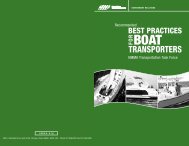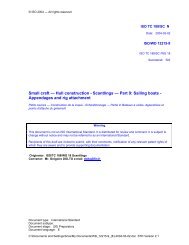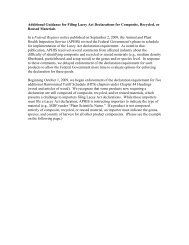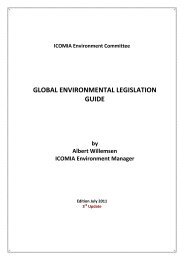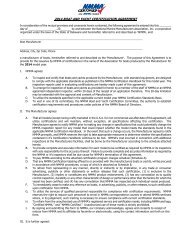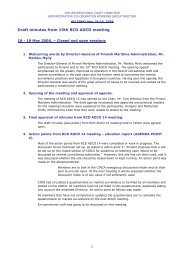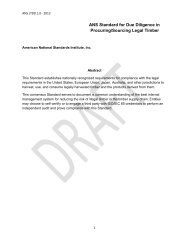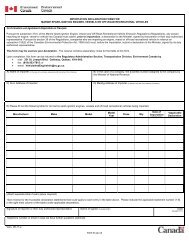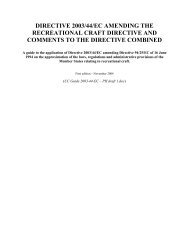Intellectual Property Protection and Enforcement Manual - Ipr-policy.eu
Intellectual Property Protection and Enforcement Manual - Ipr-policy.eu
Intellectual Property Protection and Enforcement Manual - Ipr-policy.eu
You also want an ePaper? Increase the reach of your titles
YUMPU automatically turns print PDFs into web optimized ePapers that Google loves.
Investigation of the Investigator<br />
Because the private investigator often serves as the “face” of the br<strong>and</strong> owner when interacting with law<br />
enforcement, or perhaps, testifying for the br<strong>and</strong> owner in court, the first step in selecting an investigator is<br />
to do your own investigation. Make sure that the investigator provides you with a copy of his or her license<br />
<strong>and</strong> proof of insurance, has an established business with an office, performs thorough background checks<br />
on all employees, <strong>and</strong> has IP experience that can be verified with references from other br<strong>and</strong> owners.<br />
Particular Strength of the Investigator<br />
The type of investigator needed may also be determined by the br<strong>and</strong> owner’s particular needs. For<br />
example, certain investigators are focused on Internet-based monitoring <strong>and</strong> investigations, while others<br />
may be plugged into certain geographic areas or ports. It may be that the br<strong>and</strong> owner finds itself<br />
depending on a network of investigators to adequately cover its needs.<br />
Investigator Training<br />
Just as with CBP <strong>and</strong> other law enforcement agencies, it is critical for the br<strong>and</strong> owner to train the<br />
investigator to be able to identify counterfeits of the br<strong>and</strong> owner’s products. This way, the investigator can<br />
always be on the lookout for counterfeits of the br<strong>and</strong> owner’s products <strong>and</strong> can share that information with<br />
law enforcement officials.<br />
Responsiveness to the Investigator<br />
In a good relationship between the br<strong>and</strong> owner <strong>and</strong> the investigator, the investigator will be a constant<br />
source of information about potential instances of counterfeiting. It is important, therefore, that the br<strong>and</strong><br />
owner be available <strong>and</strong> responsive to the investigator’s reports. Br<strong>and</strong> owners should create a hotline for<br />
reporting counterfeiters or, at least, provide the investigator with a single point of contact for reporting<br />
counterfeits.<br />
OUTSIDE LEGAL COUNSEL<br />
Br<strong>and</strong> owners should also develop relationships with outside legal counsel who are versed in h<strong>and</strong>ling anticounterfeiting<br />
matters. Counterfeiters are criminals who, from the very beginning, have taken measures to<br />
conceal their true identities <strong>and</strong> cover their tracks. When confronted by injured br<strong>and</strong> owners, they often lie<br />
under oath <strong>and</strong> destroy incriminating documents. The use of outside legal counsel experienced in defeating<br />
these kinds of tactics is necessary to make litigation an essential <strong>and</strong> cost-effective part of your overall anticounterfeiting<br />
<strong>and</strong> piracy strategy.<br />
In addition, an experienced anti-counterfeiting attorney can advise the br<strong>and</strong> owner in developing <strong>and</strong><br />
implementing all other aspects of an effective anti-counterfeiting plan <strong>and</strong> can serve to coordinate the br<strong>and</strong><br />
owner’s anti-counterfeiting efforts by interacting with law enforcement, CBP, private investigators, <strong>and</strong><br />
counsel for other br<strong>and</strong> owners in responding to counterfeiting.<br />
Page 20



